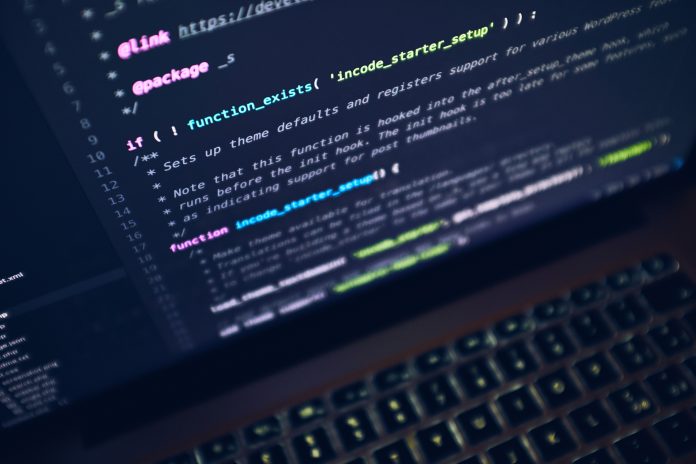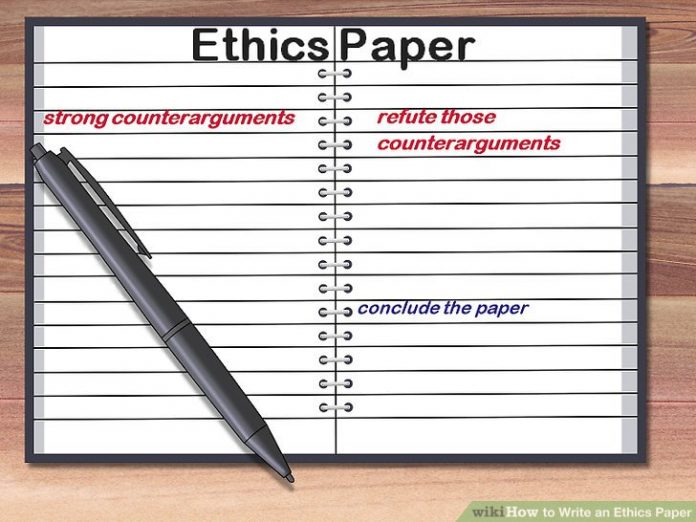Guest article by G. Subbarao
“My best wishes and greetings to students!”
Ethics paper of 2018 exam has followed the model of Ethics papers of earlier years in terms of the patterns and the number of theory and case study questions. As in earlier papers, there are a couple of outliers, intended to throw students off balance. But they are only a few. Let us look at the individual questions.
Ethics Paper Analysis: Individual Questions
Question Number 1
 The first question is about basic universal values in the context of civil services. This is somewhat similar to questions 2(a) and 2(b) of the year 2013 that are also about values in public service.
The first question is about basic universal values in the context of civil services. This is somewhat similar to questions 2(a) and 2(b) of the year 2013 that are also about values in public service.
Again in 2016 paper, there is a question [2(b)] on why impartiality and non partisanship should be considered as foundational values (another phrase for ‘basic values’) in public services in the present socio-economic context. The three questions are from the same genre or topic i.e. civil service or public service values. To use a phrase from philosophy, ‘they are tokens of the same type.’
Students should note that this is an area of interest of UPSC examiners.
There is a slight spin on the question in this paper. It asks student to select the three basic values and to justify their choice. In earlier papers, the values are mentioned and students are asked to comment on such values. In answer to this question, students can select objectivity, integrity and justice as three such values and explain the rationale of such selection. (Incidentally, I can only comment on and not answer the questions. Students will find answer to this paper in the fifth edition of our book Ethics, Integrity and Aptitude.)

Question 1 (b) asks students to distinguish between ‘Code of Ethics’ and ‘Code of Conduct’. This type (or pattern) of question is based on making distinctions between concepts, terms or doctrines. To use an American phrase, ‘these are common garden variety type questions.’
In such answering such questions, students should write about the differences between the given terms or concepts—say X and Y—and not about the individual terms themselves. The central distinction is that conduct rules are legally binding on civil servants or employees whereas ethical codes are not. There are other differences also which I pass over.
Now, notice that this type of question is asked often. The terms, what I called X and Y above, change; but the question pattern remains the same. The plot, as in most Bollywood movies, is the same; but the actors change. In literary terms, the same theme can have many variations.
Let us look at earlier questions of the same type:
- In 2013, question 5(a) is about ‘voice of conscience’ and question 5(b) is about ‘crisis of conscience’. Although the two terms appear in separate question parts, you should not mix them up.
- In 2015 paper, question 3(a) (i) & (ii) are based on conceptual distinctions. They ask you identify actions (a) which are ethically right but legally wrong and (b) action which are legally right but ethically wrong. Such questions have lot of top spin; the only way to be prepared is to spend some time while reading Ethics books on thinking about puzzling moral situations.
- Question (5a) in the same paper similarly asks about the distinction between ‘bureaucratic attitude’ and ‘democratic attitude’ and their merits and demerits.
- A similar type pattern of question with three terms—‘governance’, ‘good governance’ and ‘ethical governance’—is 2(a) of 2016. Without meaning to be critical of UPSC examiners, I may add that these three terms are treated as synonyms in many books.
- Question 5(b) 2016 in analogous in that it asks how law and Ethics differ in their approach to ensuring conditions for civilized life.
Question Number 3(a)
Let us jump now to question 3(a). Although this question, as students can see, is based on making conceptual distinctions, it has a surprising twist. UPSC examiners try to (so I understand) set questions which students cannot answer by regurgitating memorized materials. In this process, they resort at times, to borrow a phrase from Fowler (famous author of Modern English Usage), ‘novelty hunting’.

While many authors discuss ‘conflict of interest’, they seldom mention ‘potential conflict of interest.’ Incidentally, this phrasing takes me back to what I read in early sixties for my MA examination. JE Meade, an economist of those days, I recall makes a distinction between potential and actual balance of payments. Any how, the examiner seems to have thrown a curve ball. A few such surprises are part of the game and it’s fun.
Another such question is about the distinction between ‘management of ethics’ and ‘ethics of management’.
- In contrast to this question, the question on conflict of interest question asked in 2015 (Q 8) is straight forward. It asks for a definition of conflict of interest, how it arises and how it should be dealt with.
- However, the question on conflict of interest asked in 2017 is perplexing. “Conflict of interest in the public sector arises”, it says, when (a) official duties, (b) public interest, and (c) personal interest are taking priority one above the other.” It goes on to ask, “How can this conflict be resolved? Describe with an example.” The problem is that official duties and public interest generally coincide and it is difficult to visualize a conflict between them unless one is thinking of a dictatorship.
However, the point to note is that conflict of interest is another area of interest of UPSC examiners.
Question Number 2(a)
Let us turn back to question 2. (a): What is meant by public interest? What are the principles and procedures to be followed by the civil servants in public interest? (150 words)
The first part of the question asks for a definition. Seeking definitions is a common examination practice. Incidentally, answers to questions of the type ‘What is X?’ are usually definitions. On a few occasions, as in the later part of this question, it can refer to procedures, steps, or processes.
The second part of the question is difficult because it is very general and lacks a definite reference. The students have to compress a lot of general information into a few simple thoughts. Students should prepare themselves by considering how general doctrines or concepts (which are often abstract) can be applied to public service situations or contexts.
Question Number 2(b)
Question 2 (b) reads: The Right to Information Act is not all about citizens’ empowerment alone, it essentially redefines the concept of accountability. Discuss. (150 words)
Answer to this question on RTI is critical or interpretative. It needs discussion or analysis. It is easy but students have to show how RTI empowers citizens and makes civil servants accountable. These two aspects have to be elaborated in the answer.
Incidentally, RTI is another topic from which questions are often set. Students can look at question 14 (case study) in 2017 paper and question 10 (case study) in 2013.
Question Number 3(b)
Question 3(b) reads: “In looking for people to hire, you look for three qualities: integrity, intelligence and energy. And if they do not have the first, the other two will kill you.” – Warren Buffett
What do you understand by this statement in the present-day scenario? Explain. (150 words)
Notice the wording of the question. It follows the quotation which you are asked to explain in the present day scenario. Carefully note the direction word ‘explain’. It means that you have to support the statement keeping the present day context in view. In other words, you should not refute that statement or argue against it. Pay attention to direction words of questions. Otjherwise answers may sway off of the centre.
- Incidentally, question 3 (a) 2014 is similar to this one. “Integrity without knowledge is weak and useless, but knowledge without integrity is dangerous and dreadful.” What do you understand by this statement? Explain your stand with illustrations from the modern context.
Questions on some themes recur in UPSC Ethics papers.
Question Numbers 4 (a) & 4(b)
We need to look at questions 4(a) and 4(b) together. I hope you see that they are from the same topic: end and means debate in Ethics. Since the topic of the questions is the same, you have to answer them without repeating things or getting mixed up.
Question 4 (a) reads: “In doing a good thing, everything is permitted which is not prohibited expressly or by clear implication”. Examine the statement with suitable examples in the context of a public servant discharging his/her duties. (150 words)
Students should not get confused by the wording of the quotation. It uses two semi-legal words, ‘express prohibition’ and ‘implicit prohibition’. The two words point towards a distinction on how laws forbid something. There might be an express or clear provision prohibiting an action. Alternatively, the wording or phraseology of a law might contain a logical implication that such an action is impermissible. But the plain meaning of the quotation is that even for doing good we should not violate any law or common moral maxim. Write the answer from that perspective.
Question 4 (b) reads: “With regard to the morality of actions, one view is that means is of paramount importance and the other view is that the ends justify the means.”
Which view do you think is more appropriate? Justify your answer.’ (150 words)
This is a straight forward question on ends and means debate. It is in the form of a quotation. But it makes no difference to the answer. While discussing both sides of the debate, finally select the widely accepted view that bad means should not be used even for good ends.
Incidentally, UPSC examiners sometimes ask questions by embodying them in a quotation. They also preface questions at times with quotations.
Question Number 5(a)
Question 5 (a) reads: Suppose the Government of India is thinking of constructing a dam in a mountain valley bound by forests and inhabited by ethnic communities. What rational policy should it resort to in dealing with unforeseen contingencies? (150 words)
Strictly speaking, questions on environment are outside the syllabus. There is, of course; a subject called ‘environmental ethics’. However, this is not mentioned in the syllabus. Be that as it may, Ethics papers often contain questions on environment. This question is about environmental safeguards that should be incorporated in any large project. It is specifically about dams. As the question is about ‘unforeseen contingencies’ one can write about how to guard against large scale earth quakes and rare floods. This type of question allows wide amplitude to students in writing answers.

Students should note that questions have been asked on questions dealing with urbanization (migration to cities), rehabilitation of people affected by large projects, opposition of local people to big projects, and priority to be followed in evacuating people in a mountainous terrain affected by floods.
Students should be prepared for such environment related questions, especially case studies, in Ethics paper.
Question Number 5(b)
Question 5(b) reads: Explain the process of resolving ethical dilemmas in Public Administration. (150 words)
Questions on ethical dilemmas are to be expected because the subject is mentioned in the syllabus. It is difficult to frame an answer to this question. I have already mentioned the problem it poses. Books on Ethics tend to discuss ethical dilemmas keeping in mind the problems which individual moral agents face. The question shifts the frame of reference of the concept of ethical dilemma from the individual to an amorphous entity ‘public administration’. The question might therefore seem vague and inchoate; it is difficult to grasp the question or get a purchase on it.
The way of meeting this difficulty is to think of a public servant and describe how he could about handling an ethical dilemma when he faces one. Students should remember in this context that examiners would often ask them to apply general or abstract concepts of wide scope to concrete administrative situations. Students should keep asking themselves, while reading on such concepts and doctrines, the way they can be applied in administrative contexts.
Question Number 6
Let us now look at the three-part Question 6: What do each of the following quotations mean to you in the present context?
(a) “The true rule, in determining to embrace, or reject anything, is not whether it has any evil in it; but whether it has more evil than good. There are few things wholly evil or wholly good. Almost everything, especially of governmental policy, is an inseparable compound of the two; so that our best judgement of the preponderance between them is continually demanded.” Abraham Lincoln (150 words)
(b) “Anger and intolerance are the enemies of correct understanding.” Mahatma Gandhi
(150 words)
(c) “Falsehood takes the place of truth when it results in unblemished common good.” Tirukkural (150 words)
This is a standard type of question asked by UPSC paper setters.
See for example question 3 of 2014 and question 2 of 2015. First note how the question is worded. It asks ‘what each quotation means to you in the present context.’ It means that you have to interpret the quotation in contemporary terms and not on the basis of what it might have meant at the time it was written or said.
Secondly, note that you have to elaborate or elucidate the quotation making sense of it in the present day world. It means that you should not argue against what the quotation says but should harmoniously interpret in modern terms. The interpretation should be natural and reasonable and not forced or artificial.
- The first quotation means that moral and public-policy questions cannot be viewed in absolute or black and white terms.
- The second quotation can be interpreted in terms of emotional intelligence since anger will cloud thinking and push public servants into needless errors.
- The quotation from Tiruvalluvar is perplexing. One interpretation could be that if something called ‘evil’ leads to public good, it could have been mis-perceived or mislabeled by mistake. There could be other possible views. This question is another example of ‘novelty hunting’ by paper setters. Do not worry; so long as you argue reasonably, you will not be penalized in marking.
Now we have reached the case study questions. They are too long for reproduction here. As I mentioned, I am analyzing and giving hints about them and not answering them. You will find answers in the fifth edition of our book. I will confine myself to a few observations about the types of questions.
Incidentally, my co-author Roy Chowdhury thinks that the questions in this paper are realistic.
I will comment on each case study. Students should first read them carefully before looking at my comments. I will highlight only the central point without elaboration.
Ethics Paper Analysis: Case Studies
Question Number 7
The basic point here is that Rakesh cannot break or violate the conditions attached to the scheme. He should request higher authorities to change the conditions or take their approval in the case of the old man or arrange help through private charity. At field level, officers have to implement policies, and cannot deviate from them.
Question Number 8
This is what I call an open and shut case. No officer can violate the code of conduct or act dishonestly. A senior officer obviously cannot join in the shenanigans which the minister is planning.
Question Number 9
Even a plain reading of the case study makes it clear that it is about a general question which is often discussed in many different situations. It is whether government should adopt a law and order approach or a development/social approach to problems. This dilemma is often mentioned in regard to Naxalism. In this case study, we should suggest that government needs to implement schemes in the area to wean people away from boot legging.
Question Number 10
This is a case study on pollution control rather than on Ethics. As I mentioned earlier, such questions are often being asked. The answer in this case study should cover four main areas: looking for any available non polluting technology; alternative sources of raw materials for the factory; retraining workers for other occupations; and dealing with persisting pollution problems created by the closed factory.
Question Number 11
The course of action in this case study is quite clear. IT officers should focus on substantial violations of law and collect dues which the doctor is ready to pay. They should ignore minor technical lapses, and collect some fine, if warranted. As the doctor’s services are valuable to the community, he should not be troubled in a manner that will deflect him from his goals.
Question Number 12
This is an interesting question. You are asked to comment on whether Snowden’s actions are ethically justified even if they are legally unjustified. One can, of course; support Snowden. For example, we can draw a parallel with Gandhiji’s arguments for Salt Satyagraha. However, trying to enthrone individual conscience over established law or giving it a privileged position as compared to law is risky. We cannot give absolute status to any individual democratic principle or right. There are many individual democratic values and they have to be harmoniously interpreted and reconciled. No single principle can be allowed to ride roughshod over others. Similarly, each individual has a conscience, but it cannot be treated as absolute value for all. If we do so, nations and societies will disintegrate. Individuals can try to convert their values into laws through democratic or legal means. But existing laws have to be honored. Nobody should be allowed to break them in the name of higher morality.
































































